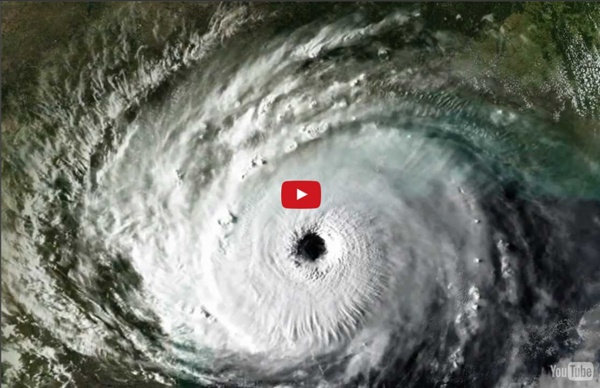



http://www.youtube.com/watch?v=EEZkQv25uEs
Capitalism and the Common Good By David Korten PDF Format Audio as produced and broadcast by Alternative Radio Inaugural Lecture, The Wayne Morse Center For Law And Politics 2011-2013 Inquiry on the theme “From Wall Street to Main Street: Capitalism and the Common Good,” University Of Oregon, Eugene, Oregon, October 5, 2011 It is an honor and a privilege to be the inaugural speaker for this important and timely University of Oregon inquiry sponsored by the Wayne Morse Center for Law and Politics. The theme—“From Wall Street to Main Street: Capitalism and the Common Good” frames exactly the inquiry we must engage as a nation—and as a species at this defining historical moment.
C.S. Lewis on Suffering and What It Means to Have Free Will in a Universe of Fixed Laws by Maria Popova “Try to exclude the possibility of suffering which the order of nature and the existence of free wills involve, and you find that you have excluded life itself.” If the universe operates by fixed physical laws, what does it mean for us to have free will? That’s what C.S. Lewis considers with an elegant sidewise gleam in an essay titled “Divine Omnipotence” from his altogether fascinating 1940 book The Problem of Pain (public library) — a scintillating examination of the concept of free will in a material universe and why suffering is not only a natural but an essential part of the human experience.
'Perpetual Growth Myth' Leading World to Meltdown: Experts "The current system is broken," says Bob Watson, the UK’s chief scientific advisor on environmental issues and a winner of the prestigious Blue Planet prize in 2010. "It is driving humanity to a future that is 3-5°C warmer than our species has ever known, and is eliminating the ecology that we depend on for our health, wealth and senses of self." Smoke billows from burned trees. A collective of scientists and development thinkers have warned that civilisation faces an 'unprecedented emergency'.
Where A Life Worth Living Comes From — Bad Words Quick: How do we sell the most stuff? How can you date a hotter person? What's all the fuzz about money? Chiang Mai, Thailand - In response to the 2008 global meltdown, there are really two arguments for what needs to happen next. One is fairly straightforward: We need to change the financial system through which money flows - though of course, the debate is on what precisely needs to be changed. But there is a more fundamental debate growing throughout the world of autonomous media and its productive publics: What if money itself needed to be changed? The Moral Bucket List Photo ABOUT once a month I run across a person who radiates an inner light. These people can be in any walk of life. They seem deeply good. They listen well. They make you feel funny and valued.
An affordable molecular sensor that analyzes the chemical makeup of anything Soon you’ll be able to tell which apple is sweetest when you’re food shopping at the supermarket, thanks to a groundbreaking device called SCiO that analyzes the chemical makeup of anything and sends the information to your smartphone instantly. The sophisticated, pocket-size sensor has just one button and can identify the nutritional information of any food, the nutritional well-being of plants and the authenticity of medications or supplements. It can also measure properties of cosmetics, clothes, flora, soil, jewels, precious stones, leather, rubber, oils and plastics. “SCiO is for anyone who would like instant information about the things they interact with and consume every day,” Dror Sharon, CEO of Consumer Physics, the company behind SCiO, told Tech Page One. Old tech, new tricks SCiO uses near-infrared spectroscopy (NIRS), a technique that has been around for decades.
Seeking Sustainability: Creative Capitalism The environmental and economic crises make it abundantly clear that we need an alternative to business as usual. Here are two approaches to developing a more sustainable economy. The first explores the shortcomings of the free market and the second leverages the strengths of capitalism. Current economic approaches have failed to reverse environmental degradation.
The McDonough Conversations: On joy and cereal boxes This is the first in a periodic series of one-on-one interviews with William McDonough, the renowned designer, architect and entrepreneur, looking into his rich, kaleidoscopic professional world. McDonough has been at the forefront of many of sustainability’s most important trends: green buildings, closed-loop systems and Cradle to Cradle design, among others. View previous columns here. I’ll be checking in with McDonough periodically to hear what he’s working on and thinking about -- an opportunity to get a glimpse into one of sustainability’s most creative and fertile minds. Joel Makower: Bill, what is your professional world like these days? How do you divide up your time in terms of architecture, design, writing, speaking, entrepreneurism and everything else?
Agenda for a New Economy: 2nd edition : YES! Magazine, Supporting you in building a just and sustainable world Agenda for a New Economy: From Phantom Wealth to Real Wealth David C. Korten Paperback, 2nd Edition, August 2010, 288 pages List Price: $19.95. Price: $15.95 (You Save 20%) And eligible for FREE Shipping on orders of $25 or more.